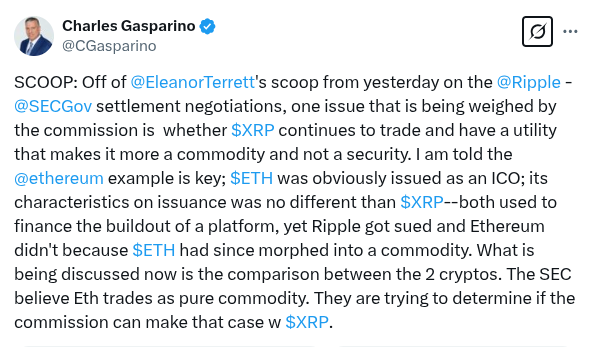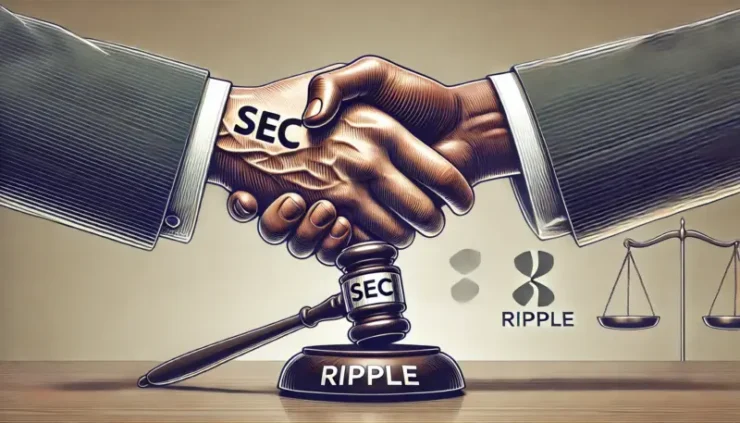The U.S. Securities and Exchange Commission (SEC) is nearing a settlement with Ripple Labs, potentially reclassifying XRP as a payment network rather than a security. The shift could have far-reaching implications for Ripple’s legal standing and the broader cryptocurrency market.
The SEC’s lawsuit against Ripple, initiated in December 2020, alleged that the company engaged in an unregistered $1.3 billion securities offering through XRP sales.
A turning point came in July 2023 when Judge Analisa Torres ruled that Ripple’s programmatic sales of XRP did not violate securities laws, though institutional sales remained in question. The case continued as Ripple faced a $125 million fine and restrictions on institutional sales from an August 2023 ruling.
Recent developments indicate that Ripple’s legal team is negotiating better settlement terms. Fox Business reporter Eleanor Terrett revealed that Ripple is leveraging a shift in SEC enforcement policy to argue for reduced penalties.
“The argument, I’m told, is that if the new SEC leadership is wiping the enforcement slate clean for all previously-targeted crypto firms, why should Ripple still be penalized?” Terrett reported.
Reclassification as a Payment Network
Maximilian Staudinger, a key figure in the discussions, has proposed that the SEC officially classify XRP as a payment network rather than a security. His proposal outlines how XRP could unlock $1.5 trillion currently tied in Nostro accounts—funds banks maintain in foreign institutions for cross-border transactions.
The U.S. banking system holds approximately $5 trillion in these accounts, and integrating XRP could free up 30% of this capital while reducing transaction fees by $7.5 billion annually.
The proposal also recommends a phased, 24-month implementation plan. In its initial stage, XRP would receive full legal clearance, allowing government agencies to test its use in transactions such as tax refunds and Social Security payments.
If successful, banks would then integrate XRP, with a long-term objective of establishing a national Bitcoin reserve.
SEC Weighs XRP’s Commodity Status
A central point in settlement talks is whether XRP should be classified similarly to Ethereum, which the SEC treats as a commodity. Fox Business senior correspondent Charles Gasparino highlighted this issue: “I am told the @ethereum example is key.” He explained that XRP and Ethereum were sold through Initial Coin Offerings (ICOs), yet only Ripple faced enforcement action.

Former SEC Commissioner Joe Grundfest questioned the discrepancy, and pro-XRP lawyer John Deaton urged regulators to consider past assessments. A 2018 SEC analysis did not classify XRP as a security, and an article by former Commodity Futures Trading Commission Chair Giancarlo argued the same.
The SEC’s softened approach under the new administration has led to case withdrawals against Coinbase, OpenSea, Robinhood, and UniSwap. The potential reclassification of XRP could further define how digital assets are regulated in the U.S.
Meanwhile, asset manager Franklin Templeton has filed for a spot XRP exchange-traded fund (ETF), signaling growing institutional confidence in XRP’s legitimacy.
As negotiations continue, the final terms of Ripple’s settlement with the SEC could set a precedent for future cryptocurrency regulation and enforcement.





